Terra Sogna Terra. Exploring Food Traditions in the Italian-American Garden
An Italian-American director and actress of Calabrese descent, and founder of Calabrisella Films, Grillo presented her new film Terra Sogna Terra, which recounts the ‘joys of tilling the earth’ in garden lives of various generations of men and women of southern Italian background.
Terra Sogna Terra sheds light on the connection to the earth that many Italian Americans still retain in the modern day and age—in urban environments with limited backyard plots, or in suburban settings with lush gardens and space available—the interviewees in Grillo’s film display an extraordinary passion for the earth and the fruit it bears us.
The film opened with video clips of Grillo’s visit to Calabria seamed together beautifully, and continued with older Italian men speaking about how they used to farm in Italy and how they’ve learned to do the same here in the States, under very different circumstances. Farming was a normal practice in small towns, or paesi, in southern Italy, where many of these people come from; they brought the practices and knowledge here, innovating and improvising the traditions that are sacred to their culture, especially to the regions of Campagna and Calabria, although farming in Italy knows no regional borders.
Elaborating on the causes of immigration, the older men and women interviewed in the film spoke of the lives they led in Italy post-WWII, when finding work was a struggle and supporting a family an even greater one. To make matters more difficult, many of them lived and worked on large farms in which the owner would take a large portion of the produce—whether it was vegetables, olives, dairy, fruit or wine—so the farmers had to work even harder to be able to feed their families. The farmers had land, but the owners of this land made it near impossible to sustain a family even remotely comfortably. From this experience, in many respects, these farmers learned how to be practical with space and rations in order to survive within this system. The strong work ethic they grew up with, along with the determination of finding a way to survive, prompted many southern Italian farmers/peasants to go abroad looking for work in South America, especially in Argentina, Brazil, Venezuela, and the US. They sent money back home and often suffered the loss of the land they cherished so much, in order for their children to have better lives in the future, as is true about most immigrant groups. Yet the connection to the earth and practice of growing food remained a cornerstone of the culture that these southern Italians transferred here.
Here in New Rochelle, Brooklyn and Queens, the men and women in the film grow all kinds of produce: tomatoes, eggplant, squash, and peppers, to name a few. Fig trees are typical fixtures in the gardens of Italian Americans in the New York area, and wine making is also a common practice. These people appreciate not only the new lives they’ve managed to attain here, but also the chance to keep alive the connection to the land that they use to have in the Mezzogiorno.
Many provocative themes were explored in Terra Sogna Terra. Some of them include: the question of land ownership, the difficulty of defining wealth (bounty of land vs. material goods), the importance of labor and living sustainably, and with respect for the land and how it feeds us all, the connection (or lack of) that new generations of Italian-American demonstrate through continuing the traditions of gardening. According to the younger gardeners interviewed in the film, sisters Gabrielle and Brooke Pati, gardening is a way to keep the farming traditions of their grandparents alive, as well as a way to be closely connected to they food they eat, and in general, it’s a fun thing to do in the warmer months! The satisfaction and tranquility wrought from being in the garden that the interviewees in Terra Sogna Terra describe are feelings that transcend age, and the appreciation for the beauty and important part in life—the food we eat—are values that also transcend cultural boundaries and generational ties.
In the US also internationally there is kind of food movement/revolution happening in which people, and in particular younger generations, are standing up against the giant factory farming industries that are not only producing cheap non-nourishing food, but are also polluting the earth through pesticide use and the transportation of unseasonal foreign produce. Farmers markets and community supported agriculture (CSA) efforts are on the rise all over the world; yet is it especially crucial, as Terra Sogna Terra suggests, that young people get involved. The cultivation of a garden containing only three to five vegetable plants seems like a small or insignificant to the food revolution, but in reality, it is a way of reclaiming the and caring for the land that keeps us alive. Young Italian Americans who have access to the myriad knowledge of grandparents, aunts, uncles and parents, can profit from embracing the food traditions of our past, an recognizing the impact that reclaiming the land, on a small scale, has on the larger landscape of food production.
During the post film discussion, with Grillo and Professor Joseph Inguanti of Southern Connecticut State University, a woman expressed her deep joy in having seen the film, and spoke of her Pennsylvania based “Italian Garden Project”, which gives tours of Italian-American gardens in the Pittsburgh region. The discussion of Terra Sogna Terra left us wondering if the values of southern Italian farmers, which are evidently still alive here in the US, are indeed still in existence in developed Italy of 2011. Perhaps one must visit to Mezzogiorno to determine the complex answer to this lingering thought.
For more information on Calabrisella Films, the food movement, or the Italian Garden project, please visit the links below.
http://www.calabrisellafilms.com/home.php
http://theitaliangardenproject.com/
http://justfood.org/






























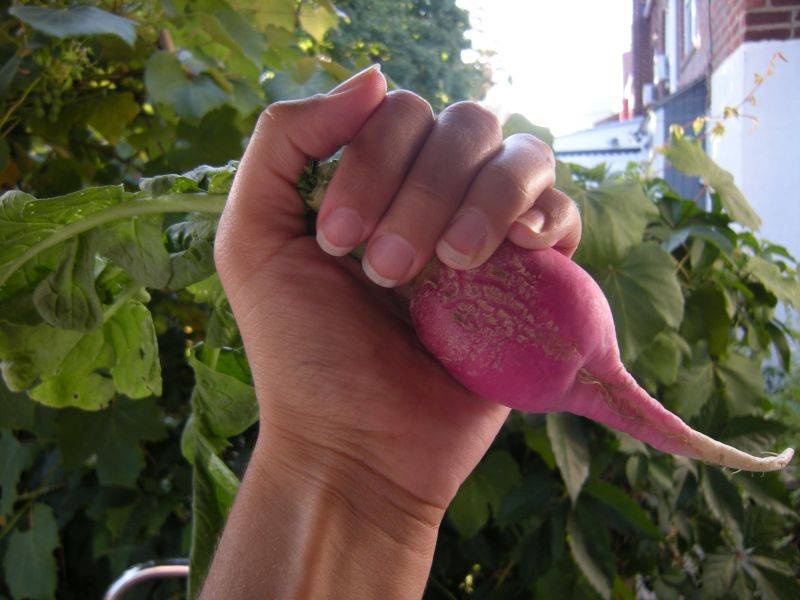
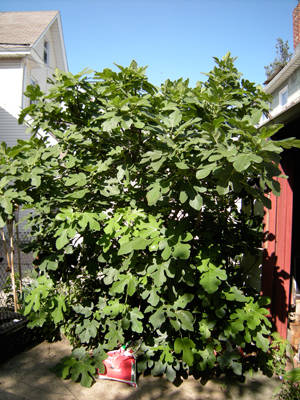
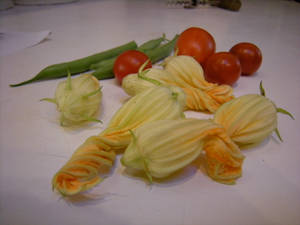
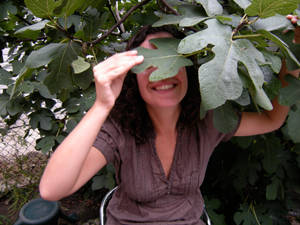
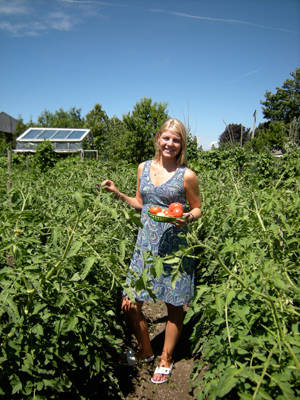



i-Italy
Facebook
Google+
This work may not be reproduced, in whole or in part, without prior written permission.
Questo lavoro non può essere riprodotto, in tutto o in parte, senza permesso scritto.